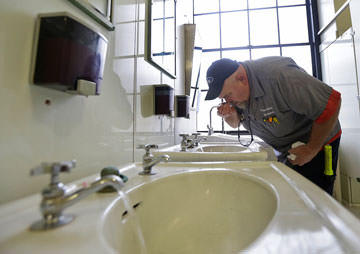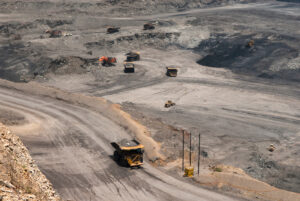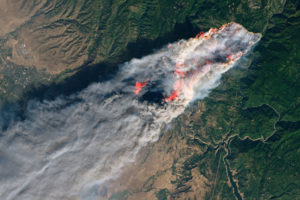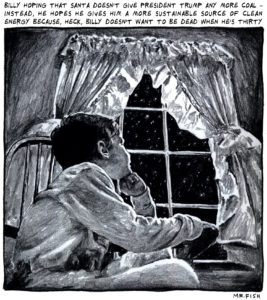West Virginia Toxic Disaster Requires More Than Silence
More than a week since the chemical spill in Charleston, the state capital, contaminated the water supply for 300,000 people, there has been little solid information about the danger to human health -- and little outrage from officials in Washington, who seem to expect West Virginians to take the whole thing in stride. Al Jones of the West Virginia Department of General Services tests the water as he flushes the faucet and opens a restroom on the first floor of the State Capitol in Charleston, W.Va. The chemical spill that contaminated water for hundreds of thousands of West Virginians is just the latest and most high-profile case of coal polluting the nation’s waters. An Associated Press analysis of federal environmental data found chemicals and waste from the coal industry have tainted hundreds of waterways and groundwater supplies for decades, spoiling private wells, shutting down fishing and rendering streams virtually lifeless. (AP Photo/Steve Helber)
Al Jones of the West Virginia Department of General Services tests the water as he flushes the faucet and opens a restroom on the first floor of the State Capitol in Charleston, W.Va. The chemical spill that contaminated water for hundreds of thousands of West Virginians is just the latest and most high-profile case of coal polluting the nation’s waters. An Associated Press analysis of federal environmental data found chemicals and waste from the coal industry have tainted hundreds of waterways and groundwater supplies for decades, spoiling private wells, shutting down fishing and rendering streams virtually lifeless. (AP Photo/Steve Helber)
The drinking water in nine West Virginia counties has finally been declared safe, or mostly safe. But many people say they can still smell the licorice-like odor of 4-methylcyclohexane methanol — in the sink, in the shower, in the air, especially in neighborhoods close to the Elk River.
I say “mostly” because so little is known about the toxicity of the chemical, known as MCHM, that the Centers for Disease Control and Prevention has advised pregnant women in the affected area not to drink the water, at least for now. Unfortunately, this warning came after the CDC had already told residents the water was safe for everyone.
More than a week since the chemical spill in Charleston, the state capital, contaminated the water supply for 300,000 people, there has been little solid information about the danger to human health — and little outrage from officials in Washington, who seem to expect West Virginians to take the whole thing in stride. I can’t help but wonder what the reaction would be if this had happened on the Upper East Side of Manhattan or in one of the wealthier ZIP codes of Southern California.
Imagine living for a week without tap water for drinking, cooking, bathing, even washing clothes. Imagine restaurants having to shut down, hotels putting sinks and showers off-limits, nursing homes trying to care for patients with only bottled water at their disposal. Imagine learning that there was essentially no information on the long-term health effects of a chemical you could smell everywhere you went.
President Obama promptly issued an emergency declaration in the hours after the spill and the Federal Emergency Management Agency dispatched tanker trucks full of clean water. But the Charleston mishap raises fundamental questions about the coal and chemical industries and the safety of our drinking water — and on this larger subject, from the president and the leadership in Congress, we’ve heard not a peep.
I should disclose that for me, this is personal: My son, daughter-in-law and 14-month-old granddaughter live in Charleston — I should say lived there, since they evacuated on the day of the spill when Gov. Earl Ray Tomblin issued the order not to use the water except to flush toilets.
This is what happened: An aging storage tank at a company called Freedom Industries leaked at least 7,500 gallons of MCHM, a “frothing agent” used in processing coal, into the Elk River. A little more than a mile downstream, in the middle of Charleston, there is an intake facility for West Virginia American Water, a utility providing water service to much of the state.
Coal and chemicals are two of West Virginia’s biggest and most powerful industries, together employing about 90,000 residents. Officials there have powerful economic incentives to see this spill as an aberration. But there is every reason to believe similar episodes can and will happen again.
Excellent journalism about the spill, much of it appearing in The Charleston Gazette, has established that this emergency should not have been a surprise.
Officials knew that the coal industry uses dozens of chemicals that have never been thoroughly tested for their effects on human health. Officials also knew this was true of the segment of the industry that Obama and others call “clean coal,” which, I have argued, should be considered an oxymoron.
Officials knew that the tanks at Freedom Industries — which has already declared bankruptcy, in anticipation of lawsuits — were old and needed refurbishment. Officials also knew that having a chemical plant just upstream from an intake for the water system was a potential hazard. And while they still do not know what the long-term hazards might be from exposure to MCHM, they do know that symptoms of acute exposure include eye and throat irritation, vomiting, respiratory distress and skin rashes.
More than 400 people have gone to West Virginia hospitals complaining of these symptoms. Only a handful have been admitted, however, and most of these people may actually be suffering from anxiety. Unless more testing is done, we may never know.
The bipartisan consensus in the state seems to be: Move along folks, nothing to see here. Sen. Joe Manchin, a Democrat, told CNN that he is “not going to cast guilt on anybody” and defended the coal industry. Rep. Shelley Moore Capito, a Republican, told the Gazette she still believes the Environmental Protection Agency is guilty of “overreaching.”
How do the EPA and the White House respond? Please speak up. We can’t hear you.
Eugene Robinson’s e-mail address is eugenerobinson(at)washpost.com.
© 2014, Washington Post Writers Group
Your support matters…Independent journalism is under threat and overshadowed by heavily funded mainstream media.
You can help level the playing field. Become a member.
Your tax-deductible contribution keeps us digging beneath the headlines to give you thought-provoking, investigative reporting and analysis that unearths what's really happening- without compromise.
Give today to support our courageous, independent journalists.









You need to be a supporter to comment.
There are currently no responses to this article.
Be the first to respond.